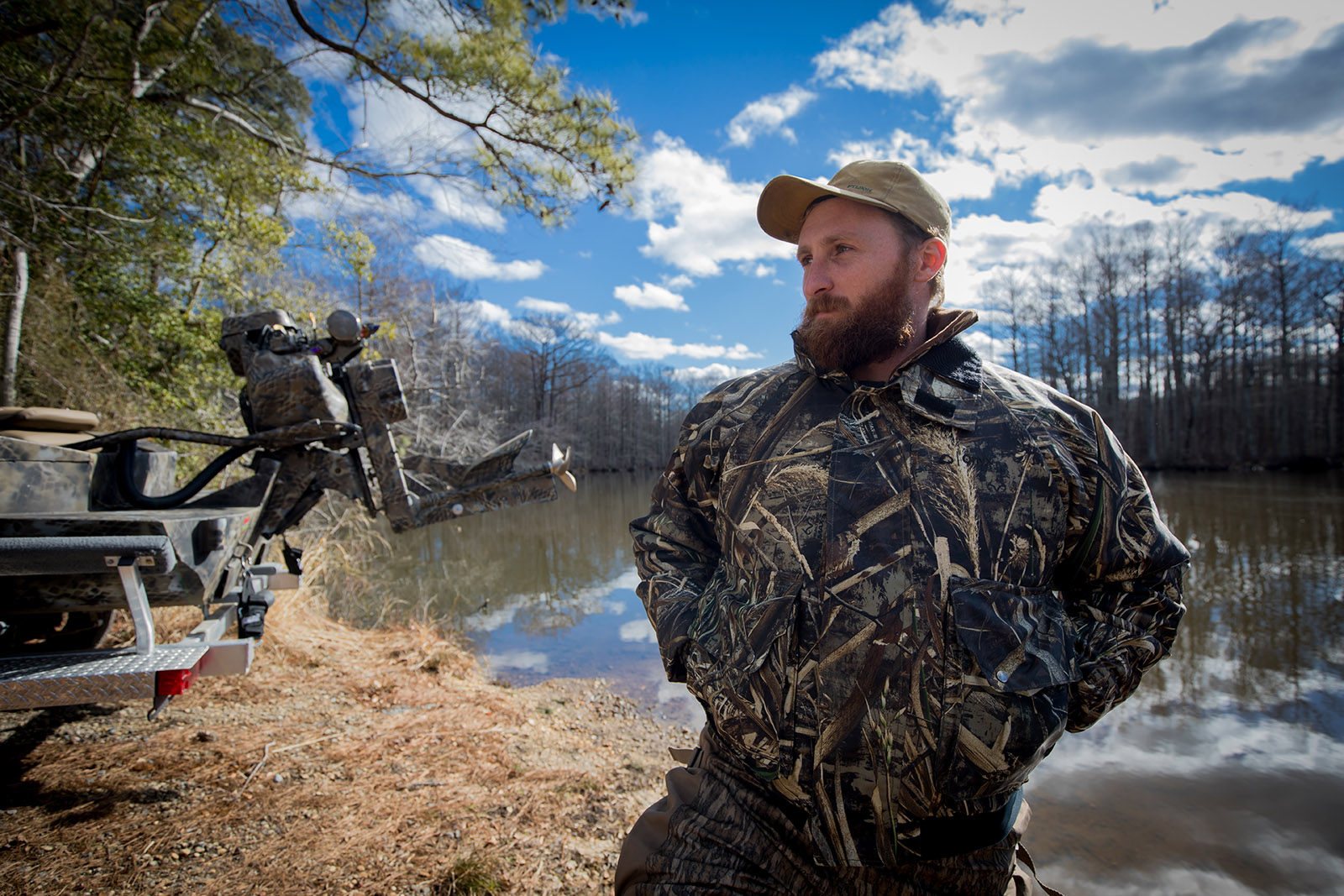By Jimmy Mootz/DWR
If you’re going to be hunting on or next to cold water this season, you’ll need to take some extra precautions to stay safe. Whether you’re hunting waterfowl from a boat, using a boat to access a blind, or hunting from a shoreline, know that plunging into cold water of any temperature becomes dangerous if you aren’t prepared for what the sudden exposure can do to your body and brain.
Cold water drains body heat up to four times faster than cold air. When your body hits cold water, “cold shock” can cause dramatic changes in breathing, heart rate and blood pressure. The sudden gasp and rapid breathing alone creates a greater risk of drowning even for confident swimmers in calm waters. In rougher open water, this danger increases. Unplanned immersion in cold water can be life-threatening for anyone without protection from the temperatures or a lifejacket to help you stay afloat. When cold shock and hypothermia begin to impact your ability to think and act, lifejackets and floatation can create extra time for help to arrive or for you to get out of danger.
Here are five tips to help keep you safe when you’re hunting on or next to cold water:
- Learn to swim! Aside from being a great cardiovascular workout, strong swimmers stand a much better chance of surviving a fall into cold waters. You have the basic skill set and confidence to know that you can swim and get yourself to shore instead of panic setting in.
- Take a Boating Safety Course. Whether you’re operating the boat or a regular passenger, safe boating begins with you. Lear the basics of safe boating before heading into those cold waters. Find a course near you at Boating Safety & Education | Virginia DWR.
- When around water while hunting, wear a life jacket and neoprene waders. You should be a good swimmer if you’re going to hunt from a boat or along the shoreline, but that’s not enough. Wearing a life jacket can literally save your life if you fall into cold water while hunting. Also, wearing neoprene waders that are fastened around your waist with a wader belt will not only help to keep you dry in the boat or blind, but will also help stay afloat should you fall into the water.

A camouflage float coat personal flotation device not only helps keep you warm when dry, but also can help save your life if you go in the water. Photo by Meghan Marchetti/DWR
- Plan your hunt and hunt your plan. When hunting on or around cold water, it’s critically important to not only plan your hunt, but to communicate that plan to someone you can trust. Include important information such as where you’re hunting, where you’re launching your boat, and where you’re taking out (if floating), who is in your hunting party, and what time to expect you to finish your hunt and report in. If disaster strikes, your trusted friend will know where to send help.
- Never overload your boat. When loading your small boat with decoys, retrievers, a couple of hunting partners and all your gear, it’s really easy to become overloaded. Be sure to know your maximum weight and number of people your boat can safely carry, and always err on the side of caution. Stay well below the maximum limits in rough or icy waters, and always keep your cased firearms and heavy items in the floor of the boat while moving.


